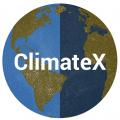Description
In this video, Professor Elfatih Eltahir explains the regional focus on his climate research at MIT. He explores the challenges that developing countries in Africa and Asia face in adapting to localized climate change. He highlights the importance of climate education and research in helping regions find viable solutions to climate change problems.
Transcriptions
[00:00:00:27] Climate change, basically, is a game changer. It's no longer we could assume that the future is going to look like the past. Actually, we are-- I mean, it's being now quite accepted, broadly, that the future is going to be different. The future is going to change. Even if we take significant mitigation efforts, there is going to be still a level of climate change that we are going to have to adapt to.
[00:00:29:28] Something that distinguishes my work from many others is we don't tend to focus on global climate, per se, but we tend to focus on climate processes at the regional scale. And understand how global climate change might impact regional climates.
[00:00:47:01] Address things like how climate change is going to impact agriculture in the American Midwest. How climate change is going to impact the availability of water in the Nile river basin. How climate change may impact malaria incidence and transmission in West Africa.
[00:01:03:10] In a way, we provide a bridge between what the global models are projecting is going to be significant changes in the future, to phenomena and processes that are really important for society. I think the general picture is you have communities in Africa and in Asia that do not have the capacity to adapt to climate change. Actually, they don't have the capacity to even adapt to climate variability and deal with climate variability. And climate change would add another layer of challenges. And those societies are not ready to, basically, adapt to those.
[00:01:51:14] It offers great opportunities for young people who are looking to make careers studying the environment, studying climate system, and doing that in ways that really could have significant impacts on society. That would really make a difference, in terms of, improving the ability of the human society to live in sustainable ways. And to be able to utilize the resources and conserve them for future generation at the same time.



